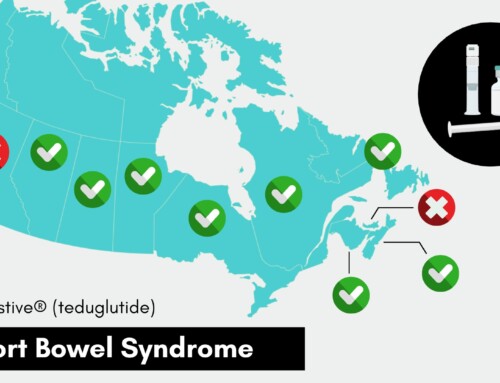
Video: The Obesity Journey
Video Transcript
Each person living with obesity has a unique journey, and many face a lifetime of frustration as they repeatedly try to lose weight and keep it off, while also dealing with shame, stigma, and misunderstanding from others. They are normal people in larger bodies who live regular lives, from mundane to extraordinary, with all the same experiences, goals, and dreams as everyone else.
About 27% of Canadians live with obesity, which is one of the most misunderstood conditions, and a further 37% are overweight. Criticisers of large sized people believe that weight is under behavioural control, and that a person can set a goal and achieve it by eating less, moving more, and using willpower. But the reality is more complex. From a medical perspective, weight is genetically, biologically, socially, and culturally derived. Several factors can affect weight, such as metabolic conditions, thyroid function, physical disabilities and injuries, medication side effects, eating disorders, trauma, grief, social standing, anxiety and depression, pregnancy, aging, lipedema, lymphedema, genetics, social isolation, and the microbiome.
Some conditions lead to weight gain by modifying hormones that control appetite and others might decrease the calories a person burns in a day, making it more difficult to maintain a lower weight.
One of the hardest parts of living with obesity is the social shaming that comes from friends and family, work colleagues, employers, random strangers, other people with obesity, and even a person’s inner voice. Regular insults and dehumanizing treatment can lead to a confused sense of self and anxiety or depression.
People with obesity can also face barriers to physically fitting into a world not built for them, such as seats on planes or buses, chairs with arms, or small toilet stalls. It can also be embarrassing to participate in sports or exercise, as they might be made fun of for being slow, sweaty, or out of breath.
Accessing healthcare for obesity can be challenging. Patients might feel too embarrassed and ashamed to seek care for other conditions, fearing their doctor will assume their illness or injury was caused by their obesity and blame them for it. Physicians can have the same biases as everyone else, and might lack empathy, telling patients that it is vital they lose weight, but offering little or no education or support to do so. When healthcare providers raise the issue of obesity in a sensitive and collaborative manner, they can help find treatments.
While most healthcare practitioners still use the body mass index, or BMI, to diagnose obesity, it is not an accurate measure because it doesn’t account for age, sex, ethnicity, fitness level, lifestyle, and other factors. Some healthcare experts are replacing BMI with the assessment of health, function, and quality of life consequences from living with excess weight.
Due to the health concerns associated with obesity, most have tried countless diets and exercise programs, from simple changes such as eating more vegetables and protein, to basic calorie counting, to diets low in carbohydrates or fat, to extremely restrictive, complicated fad diets. For some, dietary changes and regular activity are enough to get to a healthy weight and stay there. But for others, the effect is short-term.
The problem is that the body fights back. It initiates hormonal changes that make people who diet ravenous and cause them to think about food all day, every day. They end up cold and tired, which are adaptations that allow the body to burn fewer calories. They might feel irritable, short-tempered, anxious, or depressed. It can make an individual start losing hair, mess with the menstrual cycle or immune system, make skin dry, or cause constipation. Since they feel miserable, dieters begin to lose motivation, and it can feel impossible to not give in. They might also lose weight and keep it off for a while, only to be thrown off course by the stress of a major life event, such as starting a new job or school, having a child, or losing a loved one.
While exercise can help with weight management, injuries, disabilities, age, time commitments, and other aspects of life can make it challenging to have a regular fitness routine.
The next steps, if diet and activity aren’t enough, are medications and surgery. Until recently, the options for medications were limited and not very effective. Newer medications are promising, with more people seeing positive physical and psychological effects of weight loss, such as being able to lose weight without constantly thinking about food. Bariatric surgery can also be extremely effective but comes with long wait times to access in some countries. However, both medications and surgery can have side effects and don’t work for everyone. Medications are also very expensive, putting them out of reach for many lower income individuals.
For people with obesity, these factors lead to an endless cycle of weight gain and weight loss. Each time thinking this diet or treatment will be the key, this time will be different. And they might lose a good amount of weight, but then gain it back. Over and over and over again. The best treatments are those that an individual can adhere to. People don’t fail diets, diets fail people.
A person might also be content at a weight that is not perfect according to current guidelines.
Like many chronic conditions, living with obesity is not easy, even when someone tries their best to do all the right things. The journey is complex, but people living with obesity can still enjoy the ride by knowing that their worth is not attached to their weight.
Want to learn more about obesity?
We have several related articles that may be helpful:






